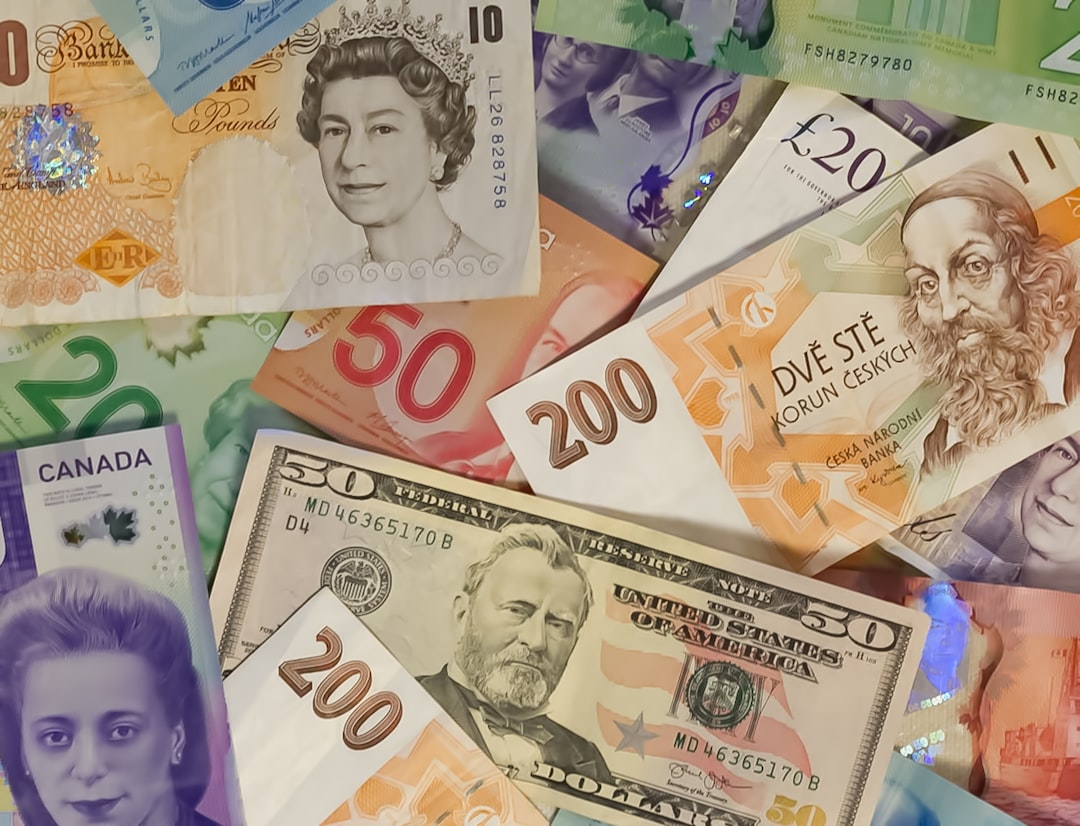Badlands Media will always put out our content for free, but you can support us by becoming a paid subscriber to this newsletter. Help our collective of citizen journalists take back the narrative from the MSM. We are the news now.
This feature will be the first in a series discussing the Nature of the Control System.
How easy is it to control a civilization?
We hear about things like money printing, media manipulation of public opinion (propaganda), and food control. All of these are most definitely factors. But these answers are too vague. We need detailed, granular information.
As this series progresses, I hope to provide clarity on the granular details.
It is my contention that, as the saying goes, the devil is in the details. We should at least know as much as the enemies of freedom so we can counter all the machinations thrust upon us.
For the first installment, we’ll go over some key concepts in an easy and carefree way. In future installments, we’ll take more time to dig into these essential nodes of understanding.
Let’s start with a topic you’ve probably heard before:
If we return to the gold standard, it will act as a solution for the fractional reserve banking system that has taken over the world.
The Gold Standard

As you no doubt have noticed, inflation is at a record high.
One expert argues that the true inflation rate for 2022 was a whopping 32%, some 22 points higher than the official number of 9.1%.
To be sure, it’s smart to have gold in your financial portfolio because, even if it’s devalued for a time, it tends to hold value in the long run. But it isn’t perfect.
One of the biggest challenges with gold is that the government can stop you from using it as money.
Several times in history, monetary authorities (as they are called)—banks, the reigning king, or a commander-in-chief—decreed that gold can’t be used as money. When this happens, financial chaos usually occurs, with the less well-off getting hit the hardest. When these things happen, the elite are usually tipped off, causing a transfer of wealth that leaves cabal players ahead.
Case in point: the run-up to the release of Central Bank Digital Currencies (CBDCs) is now taking place. At some point in the future, the cabal will trigger an event that causes a shift toward CBDCs.
A government can’t lawfully decide to unilaterally change monetary policy, such as ending the gold standard, unless the citizens have given this power to the government.
In the US, the government has used various “emergencies” to claim a power it never had—near total control over the way citizens engage in business and commerce. While the lawful basis for invoking emergency powers can be debated, the citizens almost always have to rein in the government to get their rights back. Unfortunately, citizens rarely have the time, energy, and cohesive support amongst themselves to rein in the government, which is one reason why cabal consolidation of power over the past 400 years has gone on almost completely unchecked.
Specifically, the right to commerce—also known as the inalienable right of free association—is the right to engage in trade with other citizens as one lawfully chooses, to work, buy, and sell. This right, also known as the right to contract, is actually at the heart of what WE THE PEOPLE can do to take back our freedoms from government overreach and the insidious agenda of the globalist international bankers.
That discussion, however, is better left to a future post.
When economic trouble brews, whether manufactured or organic, the ruling class imposes sanctions on using gold as money.
On April 5th, 1933, through Executive Order 6102, US President Franklin D. Roosevelt forbade “the hoarding of gold coin, gold bullion, and gold certificates within the continental United States.” This was unconstitutional, and for many reasons, an open display of tyranny for those who could grasp what was happening. The order was made under the authority of several other acts that were just as repugnant to the spirit of freedom that was woven into the founding documents of the United States of America. These acts were the Trading with the Enemy Act of 1917 and the Emergency Banking Act, signed in March of 1933.
While gold does have incredible benefits, it isn’t a magic bullet. A return to a gold standard is just one of many solutions, and it can’t do much of anything unless it’s combined with other efforts; namely, the citizens must take back their financial power from the international bankers.
Several historians and economists have noted that the gold standard, as we have come to understand it in modern times, is not an ultimate solution to over-printing money on the part of the banking cartels. In particular, market analyst and forecaster Martin Armstrong regards the gold standard as “garbage.” Armstrong is famous for developing the most successful market prediction software in history—the AI named Socrates.
In December 2020, Armstrong went on the Palisades Gold Radio show to talk about the money cycle and the failure of the gold standard. He discusses a side of history suspiciously ignored by modern financial experts and economists:
Money, as it turns out—as Armstrong and others have asserted—is intimately connected with human behavior.
We normally think of money as coming from bankers, who decide everything, including its value. But the truth is, citizens actually exert an incredible influence over money, especially if we become active players in the governance of money itself—something no citizenry has done in earnest in modern times.
Why is the gold standard garbage?
After all, the founding fathers made a point to encode it into the US Constitution, resting on the prevailing economic theories at the time, which were bimetallism and its predecessor, mercantilism. The answer has to do with how money holds value in general. And in order to understand that, we need to get to the absolute bottom of the mystery of money.
Author’s note: Let me be clear in saying, returning to a gold-backed money system has a lot of benefits. But it isn’t a silver bullet (no pun intended.) For what it’s worth, I think there are many ways to skin the international banking cabal cat, of which a return to some form of a gold standard is worth considering.
One issue with the gold standard is that it’s been used and manipulated many times in history.
A de facto (unofficial) gold standard was in place in Great Britain during the 18th century, only to be overturned later with a bimetal standard—that’s silver and gold. When silver was later fully demonetized, a gold standard was implemented officially. When this happened, the US economy experienced one of it’s worst depressions—the so-called Long Depression beginning in 1873.
The short answer is that, whether or not the money system is gold-backed, silver-backed, crypto-based, or leather skins, it’s only as good as the people who use it.
Consider these analogies to the deeper problem at work in the financial system:
Martial arts can protect you from attackers, but only if you know how to use it.
A levy can keep a town safe, but only if it’s built before the flood arrives.
Rules make a game fair for everyone, but only if everyone plays by them.
The Mystery and Power of Money

What is money and where does it come from?
Here are some common answers:
Money is the currency we receive for work.
Money is a medium of exchange.
Money is a store of value.
Money is a unit of account.
Money comes from the bank.
Money is printed by the Mint.
Money is created “out of thin air.”
The answers are correct but they don’t provide a lot of clarity.
I argue: money is a tool for freedom and prosperity—if it’s used properly.
For example, before the US Revolution took place, Great Britain imposed several Navigation Acts that all but crippled the colonies. The colonists decided to create their own form of money, free from the controls of the Bank of England. This led to one of the most economically-successful periods in American history, arguably better than what the country enjoyed after 1776.
Benjamin Franklin was asked how the colonies have enjoyed such prosperity. He responded by saying,
That is simple. In the Colonies we issue our own money. It is called Colonial Scrip. We issue it in proper proportion to the demands of trade and industry to make the products pass easily from the producers to the consumers. In this manner creating for ourselves our own paper money, we control its purchasing power, and we have no interest to pay.
The founders understood deeply what money was and how much it had been used to control the colonies. We should also take the time to understand what they did.
Why does it matter?
It matters because we can’t gain mastery of something we don’t understand precisely. Pro athletes train for years to gain key knowledge and understanding about every aspect of their chosen sport—most especially, the governing rules. This way, the player can maximize their performance while keeping an eye on the referee and other players.
We should do the same with our money system.
As players in it, we’ve become almost totally blind to the rules that govern the financial world. As a result, the referees (government) and the other team (the bankers) have cheated honest players in myriad ways.
There are many types of money, many of which come with advantages that help solve a problem in society.
What problems?
As a society increases in population and complexity, it has to manage valuation challenges. That is, consumers have a hard time knowing what is a fair price for a complex product—like a computer—without a money system.
While almost everyone on earth uses the money to some extent, almost no one knows what money is made of at the core. And even fewer people know how to maintain the money system. I would argue that this is no accident.
After all, ‘follow the money’ is a phrase used to suggest that we can investigate the flow of money to better understand the activity of shady organizations and people.
In this case, I would argue, if we take the time to understand all the forms of money and how they are used as tools of manipulation, we, in effect, pull back the curtain on the Wizard of Oz; we expose one of the pillars of the engines of control.
Following the money, in this sense, means investigating how money is defined within an economy, the laws and regulations managing it, and how the general population uses it, including an analysis of how the elites who control the money system use it. This might be considered the ‘study everything’ approach.
Author’s note: For whatever reason, I’ve been fascinated by these questions about money for years. I’ve studied central bank documents, treatises from history, and academic literature, and I’ve talked to bankers themselves. You’d be shocked to discover (or, perhaps not) that I got different answers depending on who I talked to.
Isn’t it odd to consider that money, which is as vital to modern life as breathing air, is such a mystery to most of us?
Money is the lifeblood of human civilization.
The financial system, properly run and managed, can assist society in becoming prosperous and bountiful—what some have called utopia. On the other hand, when not managed properly, money can cause wars and seemingly no end to human suffering.
Money can drive husbands away from their wives. Money can cause parents to sell their children into slavery. Money can cause people to justify murder; it can cause industries to pollute the environment; it can cause good people to do bad things; and it can even give powerful and insidious criminals control over entire countries—even the world itself.
Given the incredible power of this thing we call money, maybe we should take the time to understand it as if our lives depend on it—because they do.
Money, Trust, Work, and Motivation
Money is a unit of account; it measures value like a ruler measures length or degrees measure temperature.
In simple terms, money measures the value we place on things we need to maintain our quality of life. We’re talking about goods and services. We need food to eat (goods); we need someone to plant crops (services); and we need someone to transport the food, package it, and sell it in local stores (goods and services).
Money helps us measure work and resource contribution.
If you’re living alone, you have to do everything to maintain your quality of life. You have to cook, clean, stay warm, guard the homestead from predators, and so on. If you get sick and have to take a day off, your quality of life takes a hit. Other people living alone have the same problem. Therefore, if these people come together and recognize they have common needs and interests, then they can partner up to make life easier, not only for themselves, but for other people in the arrangement.
The idea of sharing the burdens of life gives birth to what’s called the social contract: “Let us live together and share the burdens of life so that all might live a better life.”
With this innovation, people living alone learned to reduce the work needed to survive while at the same time increasing their quality of life. This led to an increasingly powerful mechanism for generating improved living conditions—shared ventures, group enterprise, or simply communities and societies.
If you’re living with other people, and it’s a well-functioning household, everyone works together to maintain the overall quality of life of the group. Shares of work are allotted to each member, often called chores or duties. If the person in charge of gardening deceives their housemates, saying they planted crops for winter when they didn’t, then everyone suffers. The failings of one person causes ripple effects that everyone feels. In this problematic situation, a system to measure everyone’s work contribution would help.
Money can serve as this measuring system, where each service and good it produces is given a point value or credit. When people do work for the group, they receive credits they can use to purchase things they need as individuals. If they didn’t do their work, but received a community benefit anyway, then they are in debt to the community that must be paid by doing work for it.
Debt, in this sense, is an important tool for motivating people to work. But the need to use debt at all indicates the community has some measure of sickness and malfunction.
Ideally, society doesn’t need debt to motivate citizens—the members of the society want to serve others and enjoy the rewards of a good life together, as a grand family. These altruistic values of the so-called human family are what happens when a singular and common identity forms at the heart of a social group, usually as a result of a spiritual cosmology or religion, as long as it’s defined completely and objectively.
When there is no spiritual cosmology or when that spiritual cosmology has been degraded or weaponized (which is what we have today,) the society cannibalizes itself, descending into competing social casts, tribes, and clicks that recognize no benefit to serving others. It’s very similar to what happens to a family when tragedy strikes.
Out of this social chaos, the law of the jungle emerges, where the rule of law is replaced by might is right and he who wields the most force accumulates power. Does this sound familiar?
As we’ll discuss in a moment, the reason this breakdown takes place is due to a loss of confidence in the community’s ability to provide for its members. As confidence decreases, criminality increases, and this opens the door for a battle between criminals to gain control.
In small community situations, we usually trust each other enough to avoid the added work of managing a monetary system, provided that everyone pulls their weight. But when people don’t pull their weight, then the general trust in the whole community begins to break down.
The people who are pulling their weight don’t want to be taken advantage of. The people who want to enjoy the work of others, while avoiding their fair share, have broken the general trust of the community, causing harm to everyone in the process.
Here we have one of the most important features of money: trust.

Trust is the ability to rely on something or someone, to be confident something will be there when you need or want it.
If you trust your housemates to respect your food, then your food will be there when you want to eat it. If you can’t trust them, you’ll open the cabinet to discover your dinner was someone else’s lunch.
A breach of trust creates ripple effects—now you have to spend extra time to get more food, destabilizing other parts of your life. It might affect your ability to do your duties in the house, causing more failures and resulting in trust issues with other members of the community. In this way, trust is as vital to a happy, healthy, and productive life and society as knowing air will be there when you go to take a breath.
The more trust breaks down in a society, the more chaos bubbles up to cause havoc for all involved. Therefore, to avoid chaos and to ensure you have the things you need to be productive in your life, you need life partners—you need people who have committed to helping you—and in return, you help them.
The idea of people willingly working to support each other as a group in exchange for individual benefits has been called the social contract. Briefly, it means that to receive the benefits produced by the group, each member of that group has to do their fair share, like a housemate's situation of keeping the home clean.
In other words, we’re talking about a steward, also known as a representative—someone you can trust to represent your interests in society. We’re starting to get into the link between civics, government, law, and money. Trusting others to do their fair share and trusting our representatives to honor their word produces stability—confidence in society and the economy. As stability breaks down, debt-based money is needed more and more to motivate people to work in the community.
In summary, because money is essential to advanced societies, insidious groups learned long ago they could effectively control an entire civilization through the money system. To do this, they also needed to gain control of other pillars, like the law, banking and accounting, religion, and the media. With a control system in place, they could enact laws that enable unfair advantages for one sector of the economy, forcing another to do more than their fair share of work.
For instance, the primary purpose of money we laid out earlier, which is to help an advanced society measure work and resource contribution has been so thoroughly distorted over the centuries that we have a system today where some people don’t have to work much at all to thrive. I’m not talking about welfare, although that is a small-scale example; I’m talking about abstract financial industries where almost nothing is produced, and yet the proportion of the money paid out is astronomical.
For instance, the banking families of Europe, the Rothschilds have accumulated incalculable amounts of wealth. Their banks and law firms went on to become the blueprint for the entire global financial system, still in use to this day.
In effect, while they do contribute something, the share of benefits they receive from society as a whole (which includes the entire planet) is equally astronomical. Some estimates are in the trillions.
This is a huge red flag that we who seek to restore freedom and prosperity must understand.
The people who have the most influence over society have become parasites. This should not be the case. It should be the reverse: the people who have the most influence should be the most altruistic, seeking to protect the whole of society for the benefit of everyone.
This is one reason why the parasitic elites use charities to push their agenda. Through the guise of philanthropy and well-crafted media campaigns, the parasites push their agenda, with only a small portion of the population wise enough to see through the ruse.
In future installments in this series on the Nature of the Control System, we’ll dig more into the secrets of money, how these relate to the control system, and what we need to do to flip the script and create a system immune to corruption in the future.
Badlands Media articles and features represent the opinions of the contributing authors and do not necessarily represent the views of Badlands Media itself.
If you enjoyed this contribution to Badlands Media, please consider checking out more of my work for free on Substack.






Excellent article Justin and looking forward to your next one!
A very good article and very educational. It is an article that should be read several times and it’s content processed from various degrees of understanding. I look forward to the next part. Sadly most people don’t actually understand “money” at all! Understanding money, the management of money and the financial markets should be taught from primary school but it is not. (Too busy teaching them other rubbish) If they did the world would be very different I would like to think 🤔